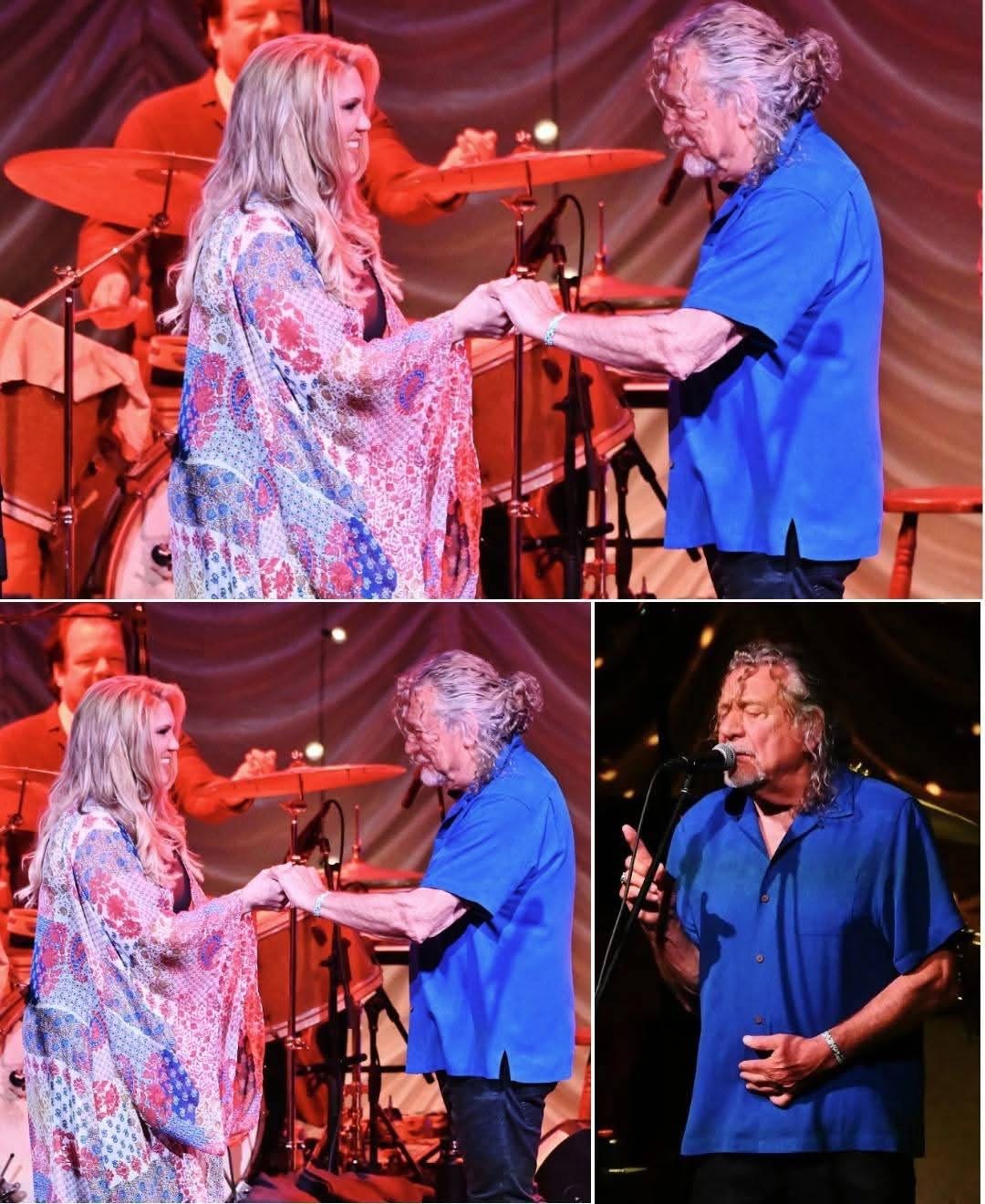Under a moonlit Los Angeles sky, the legendary Greek Theatre was the setting for a rare musical alchemy as Robert Plant and Alison Krauss took the stage. In a performance that will linger in memory for years to come, the duo delivered a transcendent blend of roots, blues, folk, and reimagined rock classics that felt less like a concert and more like a spiritual séance.
From the first notes, it was clear this wasn’t just a revisiting of past triumphs—it was a reawakening. The chemistry between Plant and Krauss, forged in their Grammy-winning 2007 collaboration *Raising Sand* and deepened on 2021’s *Raise the Roof*, was on full display. Their voices—his weathered and smoky, hers clear and haunting—intertwined with an eerie grace, casting a spell over the packed amphitheater.
The set opened with the brooding “Rich Woman,” a swampy blues number that set the tone for the night: sultry, smoldering, and steeped in atmosphere. As JD McPherson’s guitar licks curled like smoke into the night air, the band moved effortlessly through a carefully curated setlist that balanced material from their joint albums with daring reinterpretations of Led Zeppelin songs. Far from nostalgia trips, these reimaginings felt vital, intimate, and raw.
“When the Levee Breaks” rolled in like a thunderstorm—slow, heavy, and ominous. Krauss’s fiddle hovered above the mix like a siren’s call, while Plant’s voice—still mighty, still full of myth and gravel—cut through with chilling urgency. It was a masterclass in reinvention, turning a rock anthem into a Delta blues lament that felt as urgent today as it did a century ago.
But it was “The Battle of Evermore” that sent shivers down every spine. The Zeppelin deep cut, long celebrated for its Celtic mysticism, was brought to life with breathtaking precision. Krauss’s ethereal soprano rose to meet Plant’s ancient incantations, the two trading verses like twin spirits from another realm. The audience sat rapt, caught in a moment that felt suspended in time.
Throughout the night, the musical dialogue between Plant and Krauss was underscored by the prowess of their band. McPherson, a rockabilly revivalist in his own right, provided sharp, fiery guitar lines that crackled with intensity. Drummer Jay Bellerose and bassist Dennis Crouch locked in with hypnotic restraint, creating grooves that breathed, pulsed, and occasionally erupted in cathartic bursts.
They dipped into the melancholy shimmer of “Can’t Let Go” and the haunted lull of “It Don’t Bother Me,” showcasing Krauss’s quiet power and Plant’s reverence for traditional forms. Each track was its own universe—meticulously arranged yet brimming with spontaneity. The songs weren’t just performed; they were inhabited.
There was little banter between numbers, but none was needed. The emotion radiating from the stage was more eloquent than words. Whether harmonizing on the dusky “Please Read the Letter” or delving into the tender ache of “High and Lonesome,” Plant and Krauss communicated in a language older than words—one of tone, touch, and mutual trust.
As the night wound down, it was evident the audience had witnessed something truly rare: two artists at the peak of their interpretive powers, offering up their gifts not as rock gods or country royalty, but as humble stewards of a living musical tradition. In an industry too often driven by spectacle, this was something deeper—something sacred.
When the final notes faded into the warm California night, the ovation was thunderous, and deservedly so. Plant and Krauss didn’t just perform; they conjured. And in doing so, they reminded everyone at the Greek Theatre that magic—real, soul-stirring magic—still lives on the stage.
